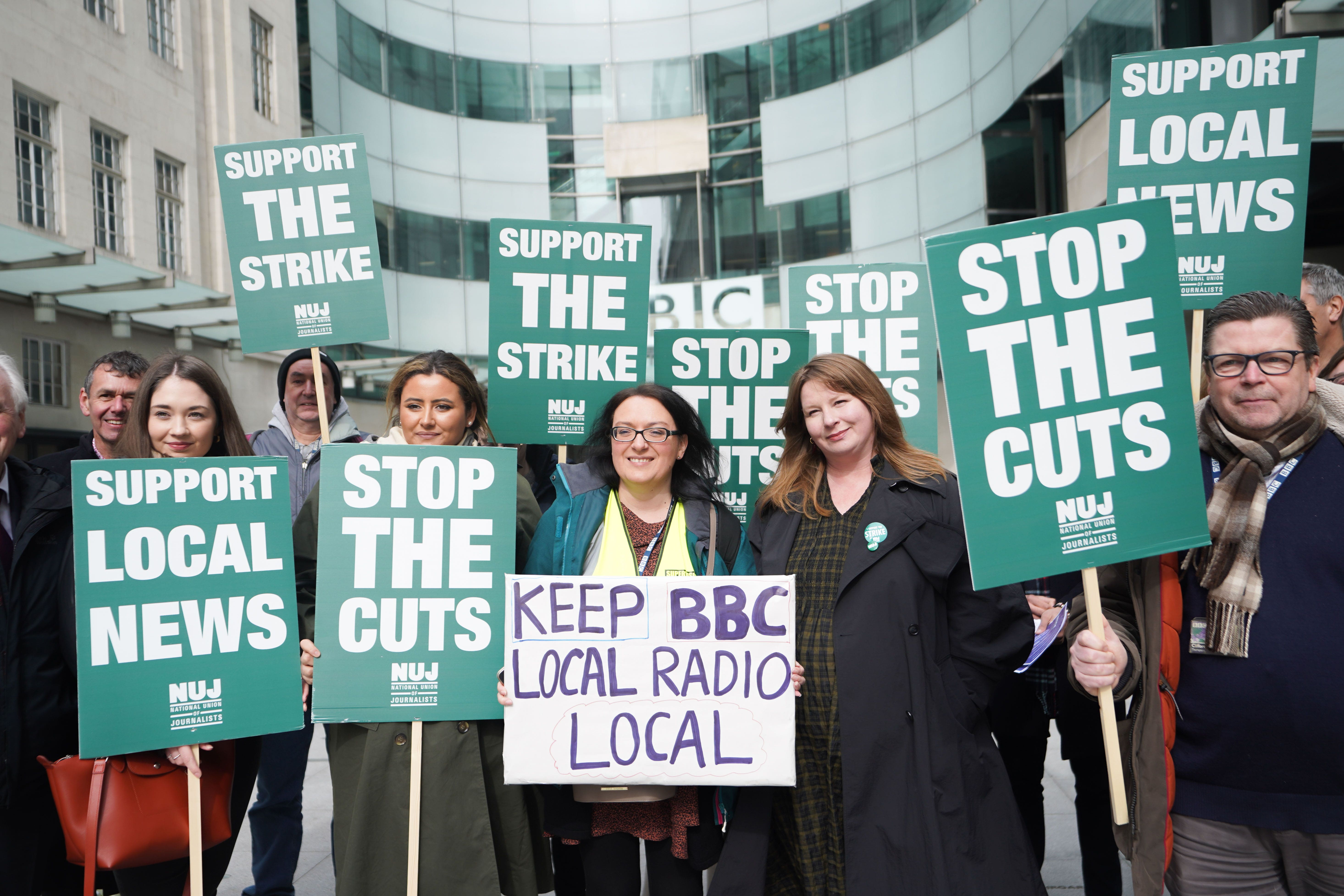BBC journalists to strike on local election night
The NUJ is in dispute over planned cuts to local radio.

Your support helps us to tell the story
From reproductive rights to climate change to Big Tech, The Independent is on the ground when the story is developing. Whether it's investigating the financials of Elon Musk's pro-Trump PAC or producing our latest documentary, 'The A Word', which shines a light on the American women fighting for reproductive rights, we know how important it is to parse out the facts from the messaging.
At such a critical moment in US history, we need reporters on the ground. Your donation allows us to keep sending journalists to speak to both sides of the story.
The Independent is trusted by Americans across the entire political spectrum. And unlike many other quality news outlets, we choose not to lock Americans out of our reporting and analysis with paywalls. We believe quality journalism should be available to everyone, paid for by those who can afford it.
Your support makes all the difference.BBC journalists in England are to stage a 24-hour strike from midnight on May 5 to coincide with the reporting of local election results, in a dispute over cuts to local radio.
It will be the second walkout by members of the National Union of Journalists (NUJ) after a strike on Budget day.
The union says BBC management wants local radio stations to share programmes across the network from 2pm on weekdays and at weekends, going from more than 100 hours of local programming on every radio station every week down to 40.
The plans will result in a number of job losses and journalists are having to re-apply for their own jobs, said the NUJ.
The strike on Budget day was followed by a work-to-rule which the union says is having a “significant impact”.
The union has approached the arbitration service Acas to see if it can help resolve the row.
Paul Siegert, NUJ national broadcasting organiser, said: “Video didn’t kill off radio and nor will digital. We understand that digital services need to be improved but it shouldn’t come at the expense of local radio which is at the heart of the BBC’s public service remit.
“To go from over 100 hours a week of local programming on every radio station down to just 40 is unacceptable. People want local, relevant news that is accessible and NUJ members are prepared to stand up and fight for that.
“Once local radio stops being local then it is the beginning of the end and BBC bosses don’t have the right to destroy an institution that has existed for over 50 years.”
A BBC spokesperson said: “We’re disappointed that the industrial action is taking place. We have a plan to modernise local services across England – including more news journalists and a stronger local online service – which will see no overall reduction in staffing levels or local funding.
“Our goal is a local service across TV, radio and online that delivers even greater value to communities.
“We will continue to engage with the trade union and do everything possible to minimise the impact on staff.”